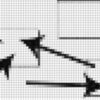Seminar Blogs

“Leaving Omelas: Media archeology and science fiction” – Stepan Lastuvka
In the seminar titled “Media Imaginaries / Imaginary Media / Imaginations of Media,” the presenters Frank Kessler and Imar de Vries together reflect on how the three parts of the title interconnect and, in turn, shape the social conditions of the present-day media landscapes. Specifically, the presenters point out how the imaginations of media…
Read more
Walking with the Trouble: Haunted Landscapes, Trauma Maps and Memory Landmarks – Olga Efremova
My natural response to the challenge set by Liesbeth Groot Nibbelink and Anne Karin ten Bosch in the final session of this year’s TiM seminar series to explore methods of drawing, the ‘soft atlas’ and performative mapping (Utrecht University 2022) was to venture outside with a drawing pad and pencil in my hand….
Read more
Misplaced Sublime: In Search of the Music Trapped Between the Two World Wars – Olga Efremova
I have been enjoying the privilege of writing this blog entry from a place in Utrecht Museum Speelklok after having visited their extensive exhibition of musical automations. I came to the place in search of something being “lost in translation”, to quote the title of Sofia Coppola’s 2003 film, when musical performances were…
Read more
The possibility of criticising the technical – Martin Essemann
The framing of music as writing, as fundamentally techical in the broadest sense, and the implicit inflation of technics and culture that seemed to underly the presentation, is perhaps a delayed response in the field of musicology to the questions about Modernism in visual art that arose in the middle of the last…
Read more
The Highest Point of Knowledge: Quentin Tarantino and the Poetics of Interdisciplinary Translation – Olga Efremova
The fifth session of the Transmission in Motion 2021-22 seminar series took place in an unusual setting: a Gather virtual town meeting set up to introduce the participants to an alternative “discursive space of connective and integrative dialogue” (Utrecht University 2022). Departing from the premise that “students with solid training in inter- and…
Read more
Laika Phone Home: Translating the Concept of “Postmemory” to Robotic Theatre – Olga Efremova
In the fourth installment of Transmission in Motion 2021-22 seminar series “Dramaturgy for Devices”, Maaike Bleeker and Marco Rozendaal invited us to analyze four dramaturgical concepts of mise-en-scène, performativity, presence and address (Utrecht University 2022). Reflecting as a part of the discussion on the previous seminars in the series made me wonder about the…
Read more
“The Summoning of “Ghostware” Translating Media Archeology into Imaginary Media as a Tactic of Speculative Interfacing” – Olga Efremova
This reflection stems directly from my previous one titled Plato’s Back, a consideration of how the theory of affect can be instrumental in understanding the historical context and consequences of translating Plato’s work into German in the first decades of the 20th century. The reason for linking these two pieces is that both are informed…
Read more
“Plato’s Back: Translating Greek philosopher’s ideas into “new politics of German stage”” – Olga Efremova
The second session of the Transmission in Motion 2021-22 series contextualized philosophical and cultural appropriation of Plato in German thought in the period leading to German industrialization and the rise of National-Socialism (Utrecht University 2021). Paul Ziche situated the translations and interpretation of Plato’s works against the backdrop of the publishing milieu of the time,…
Read more
“Specifying Modern Totality” – Martin Essemann
Two central questions were left at the end of today’s seminar on Plato and the rise of German Nationalism. One participant questioned the uniqueness of the relationship between modernism and German fascism: can equal connections and parallels not be drawn between other instantiations of totalitarianism and modernism? Either by looking at the rise and fall…
Read more
“The Ethics of Simple Solutions” – Martin Essemann
It was difficult not to understand Zarzycka’s presentation in relation to Google’s decision to fire two of its top ethical AI researchers earlier this year. Zarzycka brought up this controversial decision herself in trying to elaborate on her own difficulties and feelings about becoming a Googler, but she is, understandably, not in a position to…
Read more
